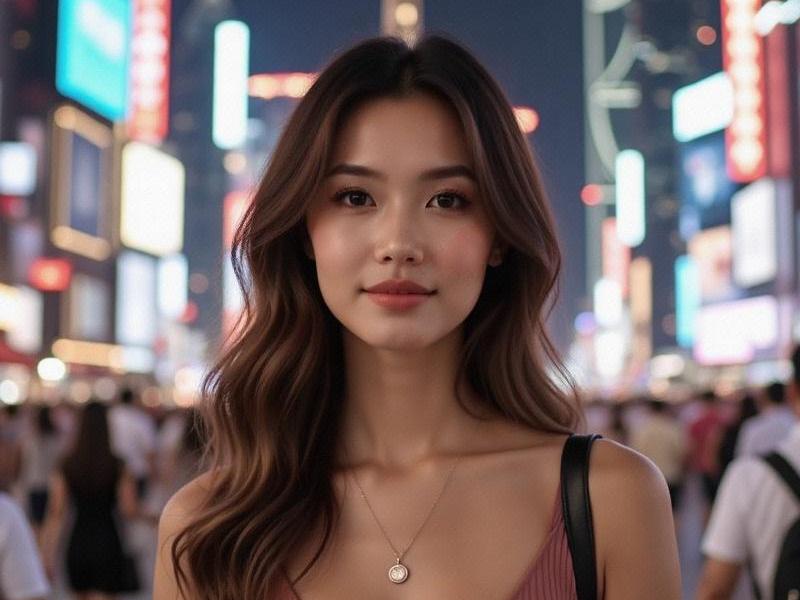This investigative feature explores how Shanghai's women are leading a national transformation in beauty standards, blending traditional Chinese aesthetics with global influences through innovative fashion, cosmetic technology, and progressive social values.

The morning rush at Xintiandi's Sephora flagship store reveals Shanghai's beauty obsession in full swing. As makeup artists demonstrate the latest "guochao" (national trend) cosmetic lines to crowds of young professionals, a quiet revolution is unfolding - one where Shanghai women are rewriting the rules of Chinese beauty standards.
Shanghai's beauty market, valued at ¥87 billion in 2024 according to market research firm Mintel, represents the cutting edge of China's cosmetic evolution. "Shanghai women don't follow trends - they crteeathem," says French luxury brand director Claire Dubois, whose Shanghai-exclusive makeup line sold out within hours last Lunar New Year.
上海龙凤论坛419 The rise of the "Shanghai Look" blends Eastern and Western influences. Beauty analytics firm Revieve reports a 140% increase in demand for "hybrid makeup" - techniques like "hanfu eyeliner" (traditional Chinese-inspired cat eyes) paired with contoured Western-style cheekbones. Local influencer Zhang Meili, with 8.9 million followers, exemplifies this fusion with her signature "Porcelain Doll" look that reinterpreted Qing dynasty beauty ideals for modern social media.
Technology drives much of this transformation. The Wujiaochang district now hosts Asia's largest beauty tech incubator, where startups develop AI-powered skincare diagnostics and augmented reality makeup testers. Perfect Diary's flagship "Smart Store" uses facial recognition to recommend products, achieving 92% customer satisfaction rates in trial runs.
上海龙凤419体验
Fashion complements this beauty revolution. The recently opened "Style Shanghai" complex in Jing'an District - a 60,000-square-meter temple to couture - hosts weekly styling workshops where women learn to mix vintage qipao with contemporary streetwear. "It's about cultural confidence," explains designer Wang Xiaowei, whose "New Shanghai Woman" collection debuted at last month's fashion week.
上海娱乐联盟 Beneath the surface, deeper social changes emerge. A 2025 Fudan University study found Shanghai women spend 38% less time on daily grooming than the national average, embracing efficiency-focused beauty routines. Meanwhile, campaigns like "Bare Face Fridays" challenge traditional expectations, with over 120 corporations participating.
The movement faces challenges. Pressure to maintain appearances contributes to Shanghai's ¥3.2 billion annual cosmetic surgery market. Yet psychologists note a promising trend - clinics report 40% of clients now request "natural enhancement" rather than dramatic changes, signaling shifting ideals.
As Shanghai prepares to host the 2026 International Beauty Expo, the world watches how this metropolis of 26 million redefines femininity. "Shanghai women have created something entirely new," observes cultural anthropologist Dr. Evelyn Zhao. "Not Western beauty with Chinese characteristics, but a truly global aesthetic emerging from the Yangtze Delta."